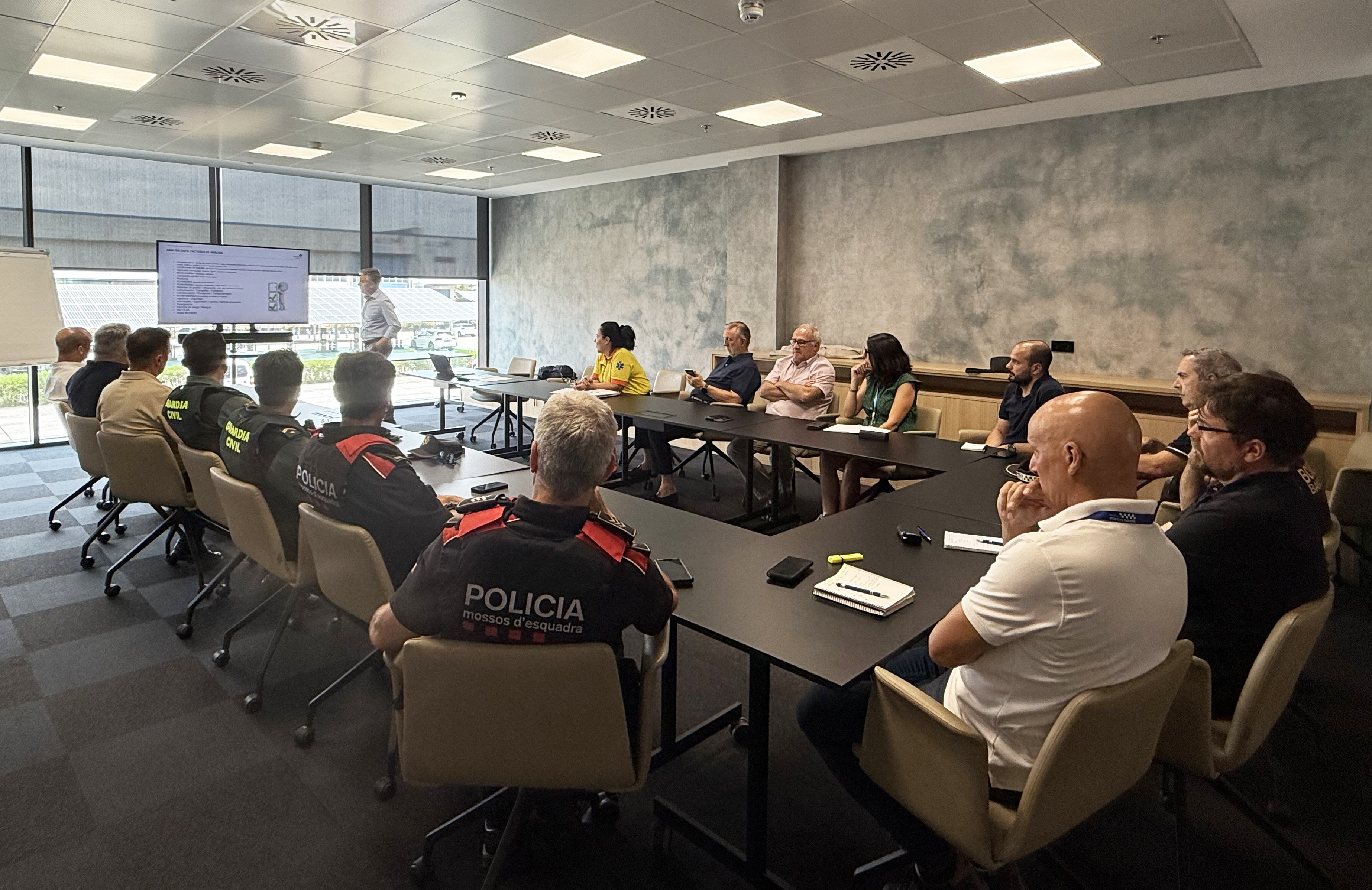Barcelona, 10th July 2025. Within the framework of the development of the new Strategic Plan for Road Safety and Sustainable Mobility, the ZAL Port (Logistic Activities Area), managed by CILSA, is working through a participatory process of the main agents involved in the emergency services that operate in the area and the team.
To highlight the meeting of this past July 8, which brought together Bombers de Barcelona, SEM, Ambulance of the Port, Urban Guard, Mossos d’Esquadra, Port Police, Civil Guard, members of the Industrial Security of the Port Authority of Barcelona and the private security team (Securitas) of the ZAL Port.
Carlos Carrasco, Director of Security of CILSA, started the session highlighting the value of the participation of the emergency bodies, as well as the need to integrate their strategic vision into the process. The aim was to generate a space for open debate, in which the main critical points could be identified and detected, as well as to collect useful contributions directly from the professionals who act on the ground. And from the sum of the different contributions, define real actions, applicable and adapted to the operational reality of the environment of the ZAL Port.
“We are working with the aim of deploying a series of actions that help all users who use or provide service around the ZAL Port and thus convey all their needs and obligations that may exist in this field,” explained Xavier Vilaró, GRM consultant, a company in charge of the technical deployment of the plan.
During the day, a SWOT analysis activity was carried out that addressed areas such as infrastructures, accesses, signalling, traffic operations, risk management or sustainability. The activity facilitated individual reflection by roles, sharing, and open debate between the different participating services. Previously, surveys, interviews and workshops had been carried out to users and companies and suppliers in the logistics area.
This collaborative activity has made it possible to identify common actions and establish a solid basis for joint work between all the key actors operating in the territory. Particular consensus was reached on the desire to improve coordination between emergency teams as a key factor in progressing in road safety and sustainable mobility in the ZAL Port. It was also stressed the importance of having defined spaces for incident management and strengthening communication channels between services, especially in shared situations.
With initiatives like this, ZAL Port reaffirms its commitment to efficient, sustainable and shared and transversal management of mobility and safety, integrating all the voices and experiences that contribute to the proper functioning of the logistics area. The diagnosis phase is scheduled to end in September, and it is planned to start implementing concrete actions before the end of 2025.
 [+34] 93 552 58 26
[+34] 93 552 58 26 sac@zalport.com
sac@zalport.com Av. Ports d'Europa 100, Planta 0, 08040. Barcelona
Av. Ports d'Europa 100, Planta 0, 08040. Barcelona






